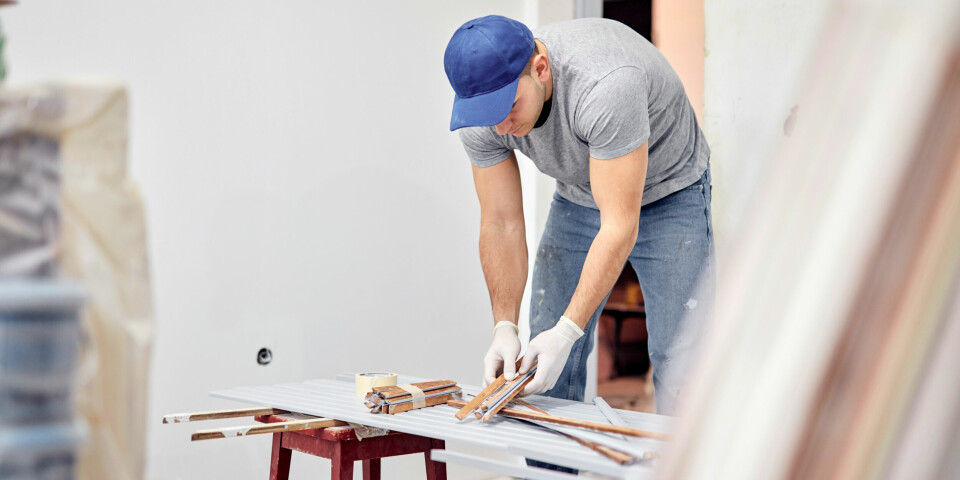-
French eye care system: readers’ experiences
Two readers have a differing opinion of the system
-
Why calls for Emmanuel Macron to resign as president of France are misguided
The president should stay put, argues columnist Nick Inman
-
Readers report high customs charges on gifts sent to France
The cost of receiving gifts is sometimes higher than their value
Channel Tunnel shows need for real-world thinking
Arguably the greatest Anglo-French achievement in history is the Channel Tunnel. The incredible link was opened by the Queen and President François Mitterrand in 1994 as a symbol of growing ties between two of Europe’s most powerful countries, and has largely fulfilled all expectations.

Not only do undersea trains now transport more than 10 million passengers a year, but huge quantities of rail freight add to the equally massive tonnage of goods moved more conventionally on Calais-Dover ferries.
Remember that this small stretch of the English Channel is a natural barrier to invasion – one that has protected Britain for centuries – meaning it has to be policed as a closed border, while also remaining open for business round the clock.
This strange contradiction furthers the Tunnel’s status as a modern marvel, but such a reputation is set to be challenged significantly as we approach Brexit.
While spectacular engineering underpinned the Tunnel’s creation, something far more innovative will be required to keep everything running as smoothly as it does today.
The worrying dichotomy is between Britain quitting the European Union single market and the customs union, while wishing to carry on as before.
Optimists believe goods can still pour backwards and forwards between the UK and the Continent.
The continuation of this frictionless trade is certainly a priority for Prime Minister Theresa May.
She is confident it can be maintained by adhering to the EU’s ‘common rule book’ that harmonises standards and regulations among all member states.
This aspect of Mrs May’s Chequers Plan sounds simple enough, except that it is thoroughly illogical: how can Britain leave the EU while effectively remaining in it?
‘Having your cake and eating it’ best translates into ‘avoir le beurre et l’argent du beurre’ [to have the butter and the money from the butter] and it is a phrase that is becoming increasingly common among French technocrats struggling with the Brexit conundrum.
At the moment the EU is Britain’s biggest trading partner.
France is just a 31-mile sprint through the Channel Tunnel, yet the UK’s prime ambition is to negotiate new free trade agreements in other parts of the world.
All well and good, but this will make the brilliantly functional Tunnel far less important, as Dover-Calais becomes a troublesome route wracked by delays and worse.
As things stand, lorries do not have to fill out paperwork, or even be checked, if they are coming from other parts of the EU.
All that will immediately change with a hard border, with pessimists predicting not only gridlock and unavoidable stoppages, but food shortages in an isolated, bureaucracy-obsessed Britain too.
As in the late 20th century, when the Tunnel was built, technology is once again mooted as a possible solution – not only for the Dover-Calais border, but the potentially far more divisive one between the Republic of Ireland and Northern Ireland.
It is claimed that everything from border checks and freight traffic can be handed over to state-of-the-art computer and camera systems, alleviating all encroaching problems.
Musings about ‘the latest technology’ and a ‘revised border concept’ are bandied about by British ministers, but we have yet to be told exactly what all this means.
France is particularly sceptical.
Hundreds of extra customs officers are being drafted in to ports such as Calais, because there is simply no proof that the “whole load of new technology” boasted about by the last UK Brexit Secretary, David Davis, who resigned in July, even exists.
It is in everybody’s interest for crucial border issues to be solved, and the sooner the British government starts offering Channel Tunnel-style solutions, rather than magical possibilities, the better.
Nabila Ramdani is an award-winning French-Algerian journalist who specialises in French politics and the Arab world. Her articles feature in the French national press as well as internationally. She is a regular columnist in The Connexion
























